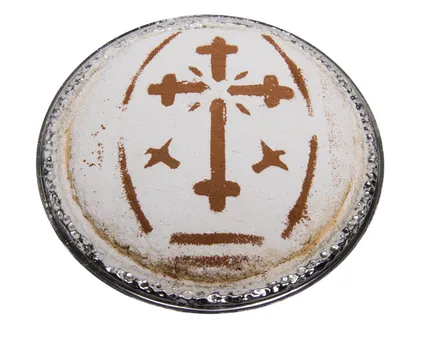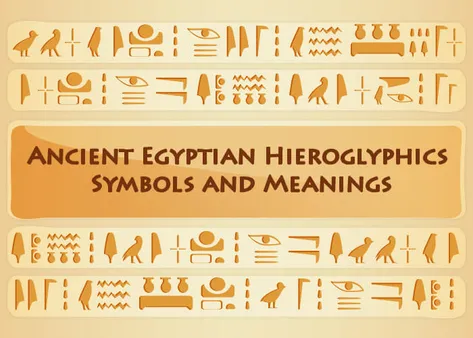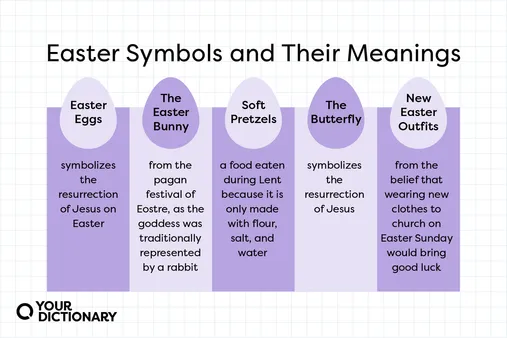Table of Contents
Embark on a culinary odyssey with Tauhuichiban as we explore The symbolism and meaning of Greek food. Greek cuisine is not merely a collection of delectable dishes; it is a tapestry of cultural heritage, woven with threads of tradition and symbolism. Each ingredient, each dish, carries a deeper significance, reflecting the essence of Greek culture and its enduring connection to nature, history, and mythology. Join us as we uncover the stories and traditions that lie behind the flavors, revealing the profound meanings embedded within Greek food.
The Symbolism and Meaning of Greek Food: A Glimpse into Greek Culture
I. Greek Cuisine: The Food and the Meanings
Greek cuisine, a symphony of flavors and textures, goes beyond sustenance; it's an integral part of Greek culture, tradition, and identity. Beyond the delectable dishes that tantalize our taste buds, Greek cuisine carries profound symbolic meanings, woven into the very fabric of its ingredients and preparation. Join us on a culinary journey as we delve into the symbolism and meaning of Greek food, exploring the stories and traditions that lie behind each delectable dish.
Nuts, Bread, and Olive Oil: The Essential Ingredients
Nuts, bread, and olive oil—the pillars of Greek cuisine—hold deep cultural significance. Nuts, a symbol of fertility and prosperity, are often used in sweets and pastries, representing the abundance of the land. Bread, the staff of life, is revered as a sacred food, representing sustenance and hospitality. Olive oil, a symbol of purity and abundance, is used liberally in Greek dishes, signifying the Mediterranean climate and the importance of agriculture.
Ingredient | Symbolism |
|---|---|
Nuts | Fertility, prosperity |
Bread | Sustenance, hospitality |
Olive oil | Purity, abundance |
These essential ingredients form the foundation of Greek gastronomy, embodying the values and beliefs of the Greek people.
Grapes and Wine: Symbols of Celebration and Rebirth
Grapes and wine hold a special place in Greek mythology and culture. Grapes, a symbol of joy and abundance, are often associated with Dionysus, the god of wine. Wine, made from fermented grape juice, is considered a sacred drink, representing celebration, rebirth, and the eternal cycle of life. From festivals to religious ceremonies, grapes and wine play an indispensable role in Greek traditions.
Ingredient | Symbolism |
|---|---|
Grapes | Joy, abundance |
Wine | Celebration, rebirth |
The presence of grapes and wine in Greek cuisine serves as a reminder of the deep-rooted connection between the Greeks and the land, as well as the importance of festivities and social gatherings.
Fish and Seafood: Representing Abundance and Fertility
The abundance of fish and seafood in Greek waters has influenced the country's cuisine significantly. Fish, a symbol of fertility and abundance, is often cooked whole or grilled, preserving its natural flavors. Seafood, such as squid, octopus, and shrimp, represents the richness of the sea and the abundance of marine life. The consumption of fish and seafood in Greek cuisine reflects the reliance on the Mediterranean Sea as a source of sustenance and livelihood.
Ingredient | Symbolism |
|---|---|
Fish | Fertility, abundance |
Seafood | Richness, abundance |
These aquatic delicacies symbolize the bounty of the sea and the importance of fishing in Greek culture.
Greek Cuisine: The Food and the Meanings
II. Nuts, Bread, and Olive Oil: The Essential Ingredients
Nuts, bread, and olive oil are the cornerstones of Greek cuisine. They are used in a wide variety of dishes, from salads and appetizers to main courses and desserts.Nuts are a good source of protein, fiber, and healthy fats. They are also a good source of vitamins and minerals, including magnesium, potassium, and zinc.
- Bread is a staple food in Greece. It is made from wheat flour, water, and yeast.
- Bread is often served with meals, or used to make sandwiches and wraps.
Olive oil is a healthy fat that is used in a variety of dishes. It is a good source of monounsaturated fats, which are beneficial for heart health. Olive oil is also a good source of antioxidants.These three ingredients are essential to Greek cuisine. They are used to create a wide variety of dishes that are both delicious and healthy. Greek cuisine is associated with family, community, feasting, and warm hospitality, and these values are expressed in the preparation and consumption of Greek food.
Dishes | Description |
|---|---|
Spanakopita | A savory pie made with spinach, feta cheese, and filo dough. |
Moussaka | A casserole made with layers of eggplant, potatoes, ground meat, and a béchamel sauce. |
Pastitsio | A baked pasta dish made with ground meat, pasta, and a béchamel sauce. |
Nuts, Bread, and Olive Oil: The Essential Ingredients
III. Grapes and Wine: Symbols of Celebration and Rebirth
In Many Cultures
Grapes and wine hold significant meanings across diverse cultures, often symbolizing joy, merriments, and new beginnings. In ancient Greece, grapes were associated with the god Dionysus, the patron of wine, revelry, and theatrical arts. Wine played a central role in Greek festivals, representing the spirit of celebration and the intoxicating pleasures of life.
<
Similarly, in Roman culture, grapes and wine were closely tied to the god Bacchus, the equivalent of Dionysus. The Romans believed that wine possessed divine qualities, capable of inspiring creativity, enhancing social interactions, and bringing joy to gatherings. Wine was an indispensable part of Roman banquets, symbolizing abundance, hospitality, and the pursuit of a good life.
Culture | Symbolism | Associated Deities |
|---|---|---|
Ancient Greece | Celebration, joy, revelry | Dionysus |
Roman Empire | Abundance, hospitality, good life | Bacchus |
Christianity | The blood of Christ, rebirth, renewal | Jesus Christ |
Judaism | Fertility, abundance, joy | - |
In Religious Traditions
Beyond cultural celebrations, grapes and wine hold deep religious significance in various traditions. In Christianity, wine represents the blood of Jesus Christ, symbolizing the sacrifice and rebirth associated with the crucifixion and resurrection. It is used in the sacrament of Holy Communion, commemorating the Last Supper and serving as a reminder of Christ's love and sacrifice.
In Judaism, grapes symbolize fertility, abundance, and joy. They are mentioned throughout the Hebrew Bible and often associated with the Promised Land, a place of milk and honey where grapes flourished. During the Jewish festival of Sukkot, grapes are one of the "Four Species" carried in a symbolic ritual representing the bounty of the harvest.
Grapes and Wine: Symbols of Celebration and Rebirth
IV. Fish and Seafood: Representing Abundance and Fertility
In Greek cuisine, fish and seafood hold a significant place, symbolizing abundance and fertility. The Mediterranean Sea's rich waters provide a bountiful supply of these aquatic delicacies, which have been a staple in the Greek diet for centuries. Fish and seafood are often featured in traditional Greek celebrations and festivals, where they are believed to bring good luck and prosperity.
The symbolism of fish and seafood in Greek culture is deeply rooted in ancient mythology. In Greek mythology, the god Poseidon, who ruled over the sea, was often depicted holding a fish or a trident. Fish were also associated with the goddess Aphrodite, who was born from the sea foam. These associations further reinforced the connection between fish and fertility and abundance.
Fish | Symbolism |
|---|---|
Sea bass | Abundance and prosperity |
Red mullet | Good luck and fortune |
Octopus | Fertility and longevity |
Squid | Wealth and prosperity |
In addition to their symbolic meaning, fish and seafood are also highly valued for their nutritional benefits. They are a rich source of protein, omega-3 fatty acids, and vitamins. The Mediterranean diet, which is renowned for its health benefits, emphasizes the consumption of fish and seafood.
Today, fish and seafood continue to play an important role in Greek cuisine. They are used in a wide variety of dishes, from simple grilled fish to elaborate seafood stews. Some of the most popular Greek seafood dishes include grilled octopus, fried calamari, and moussaka, a casserole made with eggplant, potatoes, and ground meat.
Whether enjoyed as a symbol of abundance and fertility or simply as a delicious and nutritious meal, fish and seafood are an integral part of Greek culture and cuisine.
Fish and Seafood: Representing Abundance and Fertility
V. Conclusion
As we conclude our exploration of the symbolism and meaning of Greek food, we are left with a profound appreciation for the rich cultural heritage embedded within each dish. Greek cuisine is not merely a collection of recipes; it is a living testament to the traditions, beliefs, and values of the Greek people. From the humble olive tree to the bountiful sea, the ingredients of Greek food carry symbolic meanings that connect us to the land, the seasons, and the rhythms of life. As we savor the flavors of Greek cuisine, let us also remember the stories and traditions that give it such depth and significance.